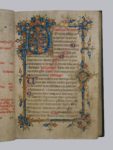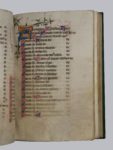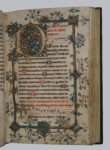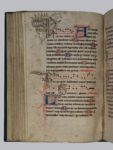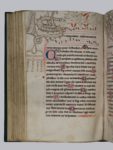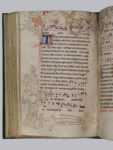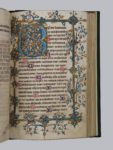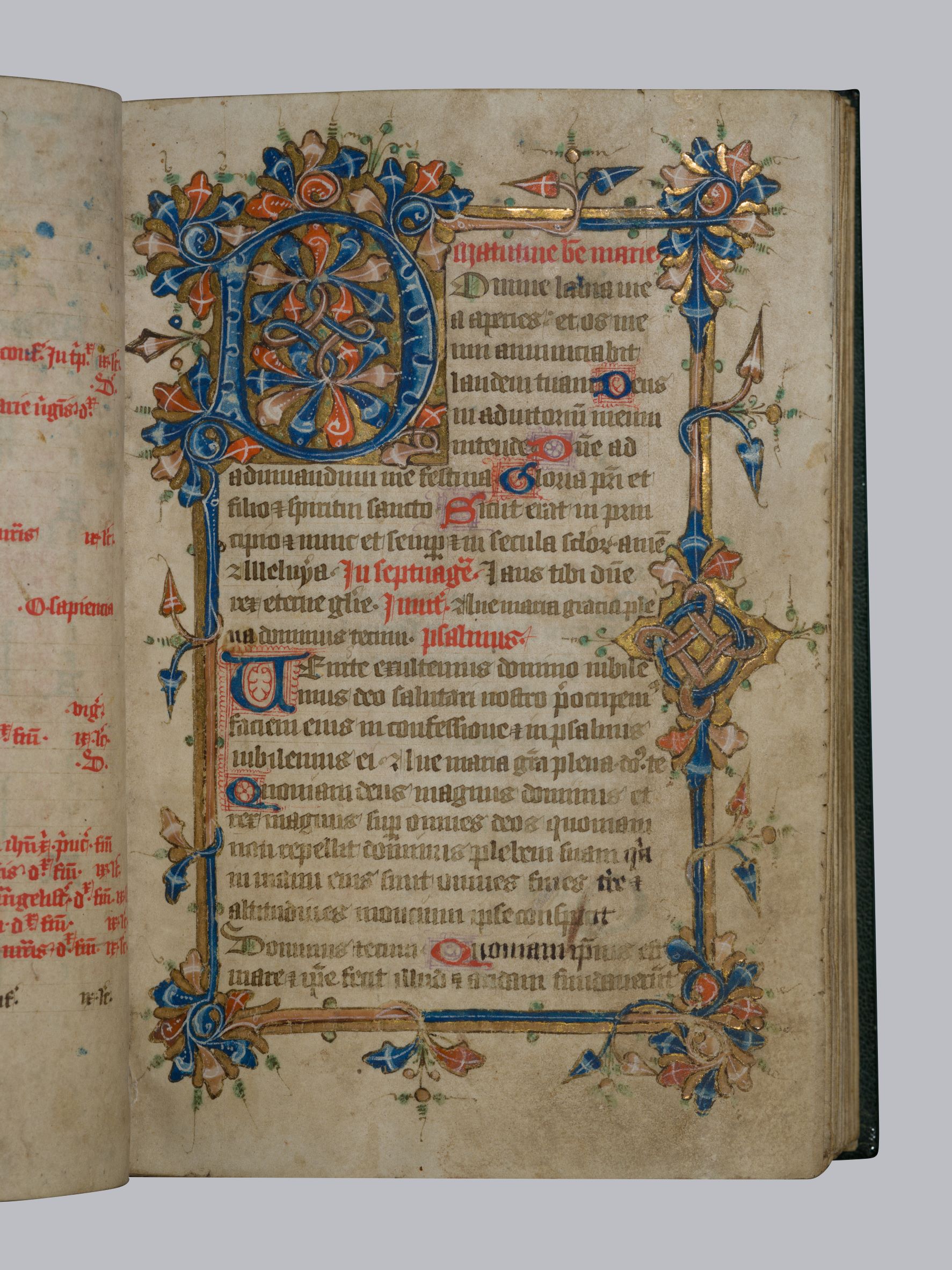
Book of Hours with musical notation, c. 1400 [MS48]
England
Manuscript on vellum with grisaille decoration and illuminated initials, ff.149. Bound in green crushed morocco over pasteboard by Katharine Adams, 1911 (21 x 14 cm)
A Book of Hours is a liturgical book that contains prayers to the Virgin Mary to be recited at certain times of day. Unlike many Books of Hours, which are often full of miniatures and illuminated decoration (see MS102), this manuscript is relatively modest, with only occasional illuminated initials and floral borders.
An unusual feature of MS48 are the musical notation and elaborate penwork that accompany the Office of the Dead (fols 68r–95v): a set of prayers common to every Book of Hours. The Office contains numerous extravagant cadels—calligraphic extensions of initials often in the form of human and animal heads. The decoration is in a style characteristic of English manuscript decoration at the end of the 14th century. Of nearly a thousand English Books of Hours to survive, this is just one of only about a dozen to include music in the Office of the Dead.
John Lant, a physician and organist at Winchester Cathedral, gave the manuscript to the College in 1608. Although there are no certain marks of its original ownership, the contents indicate that it was made for a priest. The inclusion of prayers to Saint Frideswide, patron saint of Oxford, suggest it may have been made for a patron there.
Literature: Edward Bernard, Catalogi librorum manuscriptorum Angliae et Hiberniae in unum collecti, Vol. 2 (Oxford, 1697), p. 31, no. 1346; Neil R. Ker and Alan J. Piper, Medieval Manuscripts in British Libraries, Volume IV: Paisley–York (Oxford, 1969), pp. 632–34; Kathleen L. Scott, Later Gothic Manuscripts, 1390–1490, vol. 2 (London, 1996), p. 255; Anne Bagnall Yardley and Jesse D. Mann, ‘The Prayer Life of a Fifteenth-Century English Priest: Winchester College MS 48’, Sacris Erudiri: Journal of Late Antique and Medieval Christianity, LVIII (2019), pp. 221–51; Anne Bagnall Yardley and Jesse D. Mann, ‘Winchester College MS 48: New Research’, in Winchester College Collections 2019–20 (2020), pp. 4–7; Anne Bagnall Yardley and Jesse D. Mann, ‘Facing the Music: The Whimsical Cadels in a Late Medieval English Book of Hours’, Peregrinations: Journal of Medieval Art and Architecture, VII, No. 2 (2020), pp. 52–85.
Provenance: Given to Winchester College by John Lant, 1608.
Location: Fellows’ Library
